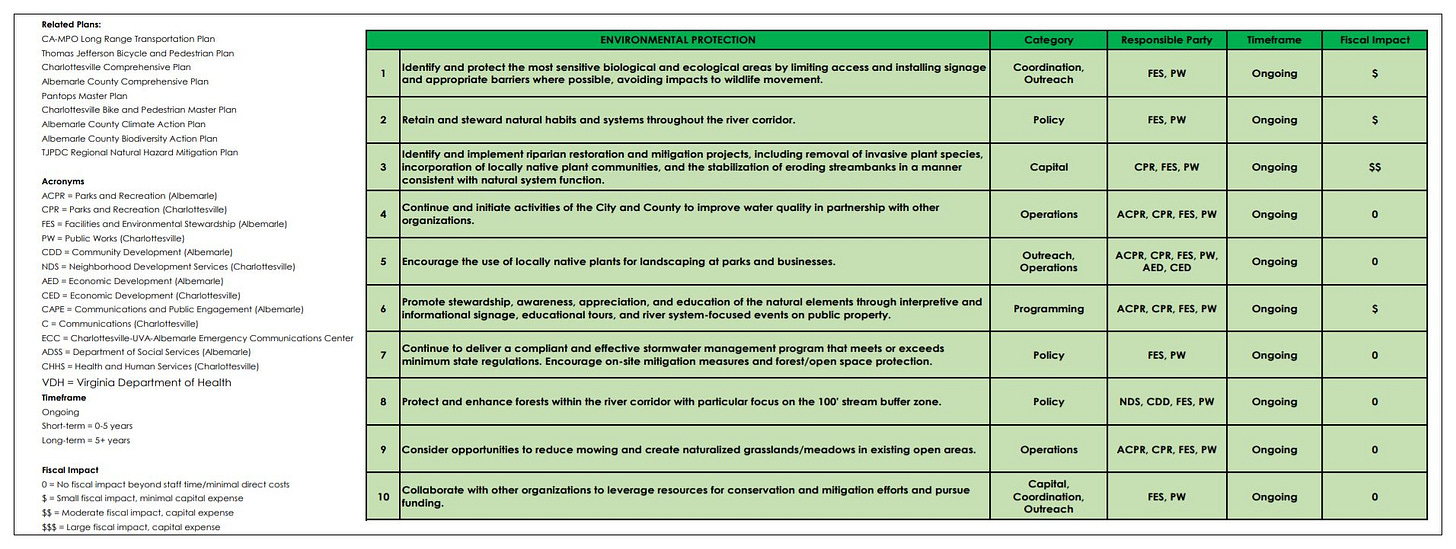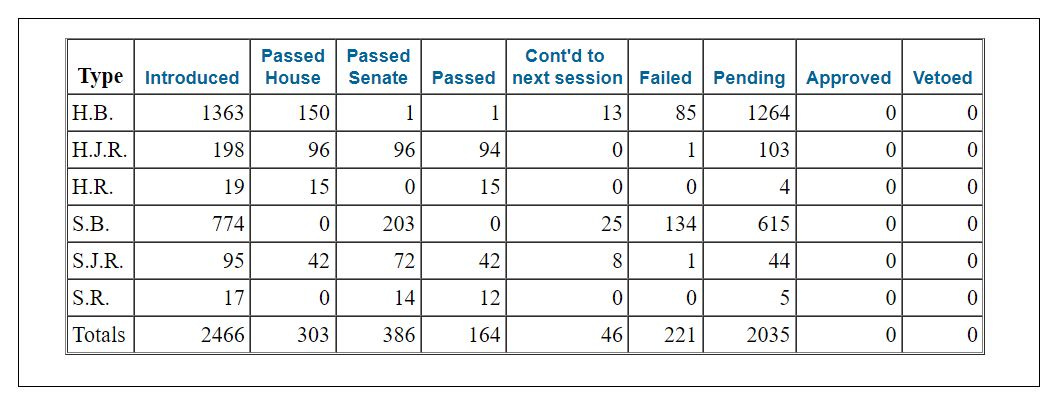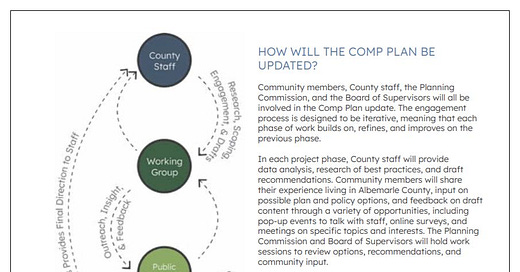Another week begins, and it’s the first Monday of February and the sixth of 2022 so far. There are two more minutes of daylight in the Charlottesville area today according to the almanac, and another two minutes per day for every single remaining day in this month. Time has its advantages. So does every installment of Charlottesville Community Engagement, a newsletter and podcast that always has a protractor handy. I’m Sean Tubbs, trying to plot out all the angles.
On today’s program:
Details on how Albemarle’s Comprehensive Planning update will be conducted
Albemarle supervisors are briefed on the Urban Rivanna Corridor Plan a few days before City Council considers adding it to their comp plan
Another status update on bills in the 2022 Virginia General Assembly
Shout-out for WTJU’s Folk Marathon
In today’s first Patreon-fueled shout-out, WTJU 91.1 FM invites you to tune in all this week for the annual Folk Marathon. It’s a round-the-clock celebration of folk music, specially programmed for your listening pleasure. Whether your favorites are Woody Guthrie, Emmylou Harris, Steve Earle, Eva Cassidy, or Neil Young… When you connect with WTJU’s Folk Marathon, you’ll find authentic music playing for you. And WTJU amplifies local artists, and this year’s Folk Marathon will air live music every day for you. We’re excited that the line-up includes Barling & Collins, BRIMS, Mama Tried, and more! Plus special guest hosts Terri Allard, Charlie Pastorfield, Jamie Dyer, Devon Sproule, Waverly Milor, and many others. Visit wtju.net to learn more and to make a contribution.
Pandemic update
As we begin the week, the Omicron surge continues a gradual decline. The Virginia Department of Health reports a seven-day percent positivity of 19.7 percent, down from 25.5 percent a week ago. There are 2,250 patients with COVID in Virginia hospitals according to the Virginia Healthcare and Hospital Association. That’s down from a high of 3,948 in mid-January.
Dr. Costi Sifri is the director of hospital epidemiology at the University of Virginia Health System and he said there is a noted decline, but people should remain vigilant.
“While we’re declining we still have very high case rates,” said Dr. Sifri. “There’s been a lot of discussion and anticipation that we’ll see a rapid decline and we are certainly hoping for that in terms of cases. There’s some concern that maybe we’ll see a bit of a plateau or a shoulder perhaps due to the emergence of the omicron subvariant B.A.2.”
Today in the Blue Ridge Health District there are another 102 cases reported today.
If you’re told by someone you’ve come into contact with that they’re COVID positive, you should get a test.
“If you’ve been exposed to somebody who has COVID then it’s really very important so we can break these chains of transmission,” Dr. Sifri said.
If you still are looking for a vaccine in the area, visit the Blue Ridge Health District’s website to learn more about you or someone you know might get one. Here’s the link for vaccines. Here’s the link for testing.
Albemarle Supervisors briefed on Urban Rivanna Corridor Plan
A plan to guide future development on both sides of the Rivanna River has been reviewed by one of the two localities and will go before the other tonight. Albemarle Supervisors learned the details of the plan at their meeting on February 2. Sandy Shackelford is the director of planning and transportation for the Thomas Jefferson Planning District and she provided a geographic reference. (read the draft)
“It’s the portion of the Rivanna River corridor that is 4.3 miles long,” Shackleford said. “It spans from Pen Park as the northern terminus to I-64 as the southern terminus.”
Shackelford said the most important priority that came out of the public engagement process was a focus on environmental protection and stewardship of the river.
“The determination was that among the guiding principles, environmental protection had to be pulled out as the most important to first consider and only once environmental protection stewardship was addressed could the other guiding principles be considered to be equally important to each other,” Shackelford said.
Environmental recommendations include identifying sensitive areas, retaining existing natural habitats, and continued improvements on stormwater management in the urban areas of both communities.
City Council will take up the matter at their meeting tonight in the form of an amendment to the Comprehensive Plan.

General Assembly update: Good news for dairy providers
There’s a week until Crossover Day in the Virginia General Assembly. February 15 is when bills from one House must have passed in order to make it to the other one for the potential of passing. Control of the legislature is divided up by each political party and differences in political philosophy will continue to be revealed.
But, here’s a snapshot as the week begins. A total of 2,466 bills have been introduced and only one has passed both the House of Delegates and the Senate. That bill (HB828) would expand eligibility for a program to help farmers and others who make dairy products.
The Republican-controlled House has passed 150 of its own bills, and the Senate has passed 203 of its own. Another 221 bills or resolutions have officially failed, 46 have been carried on to next year, and another 2,035 are pending.
Let’s look at some of those that have passed the House of Delegates and now await their fate in the Senate.
A bill that would require school principals to report potential misdemeanors to law enforcement passed on a 59 to 40 vote. (HB4)
A bill that would make it easier for School Boards to dismiss teachers passed on a 52 to 47 vote. (HB9)
A bill that would prohibit localities from requiring contractors to provide benefits passed on a 52 to 48 vote. (HB58)
A bill to require political candidates to file campaign finance reports electronically passed 99 to 1. (HB86)
A bill altering the requirements for advertisements of public hearings in a newspaper passed 77 to 23. (HB167)
A bill allowing City of Martinsville to hold a referendum on whether become a town in Henry County passed 82 to 18. (HB173)
Localities could increase the amount of funding they can apply for through the Local Food and Farming Infrastructure Grant Program to $50,000, up from $25,000. That bill passed the House 99 to 0. (HB323)
A bill to add “all-virtual public meetings” to a list of permitted government passed meetings 98 to 0. (HB444)
Now, a few from the Senate:
Augusta County would be authorized to hold another referendum on removing the county seat away from the city of Staunton, under certain conditions in SB283. The bill passed 39 to 1 with the lone vote against coming from Senator Creigh Deeds (D-25).
A bill to require a study of public notice requirements with an eye toward streamlining them passed 40 to zero. (SB417)
A bill that would prohibit the use of traps to hunt or kill game animals passed 23 to 16. (SB492)

Shout-out: Pen Park cemetery discussion on Wednesday
In today’s subscriber-fueled shout-out, work continues to identify people whose remains are buried just outside a cemetery in Charlottesville’s Pen Park. The Albemarle Charlottesville Historical Society and the Jefferson-Madison Regional Library will give an update in a webinar on Wednesday, February 9 on the Forgotten History of Pen Park: Unmarked Graves of Enslaved Persons. The panel will discuss the research thus far to identify the unmarked graves of enslaved individuals outside the Gilmer, Craven, and Hotopp family cemeteries and the connections that are being made to living descendants. Speakers include Charlottesville’s historic preservation planner, researchers and descendants. Visit the library’s website at jmrl.org to register. Also go watch the first installment from past June on the Historical Society’s YouTube page.
Albemarle County Comprehensive Plan review underway
On Thursday morning, staff in Albemarle County’s Communications and Public Engagement office will hold the first in a series of pop-ups on the county’s review of the Comprehensive Plan. The county’s Planning Commission learned about how the update will be conducted, including details of a working group that will be appointed to work on the project. But what is a Comprehensive Plan? (pop-up info)
“It’s a guiding document for growth, development, and investment in the county, and its used to guide decisions on public infrastructure and funding, also policies and programs, and then review of some development applications that come through the county,” said Rachel Falkenstein, the county’s planning manager.
Comprehensive Plans have a 20 year horizon and the last update in Albemarle County was approved in the summer of 2015. Since then, Falkenstein said there’s been a lot of change.
“An example of that is that we’ve had 4,000 new dwelling units since that 2015 plan was completed and the community’s median household income and home values have continued to rise since that time,” Falkenstein said.
There’s also been adoption of a new housing plan, a new economic development plan, and a climate action plan. The review of the Comprehensive Plan is known as AC44 and will be done in four phases with the first currently underway. (project website)
“Phase one is called ‘Planning for Growth’ and in this phase we will review, evaluate, and update the current growth management policy through the lenses of equity and climate action and identify options for updating the policy based on best practices and on capacity projections for residential and business growth in the county,” said senior planner Tori Kanellopoulos.
Since 1980, the key feature of that growth management policy has been directing growth into approximately five percent of the county’s 726 square miles.
To help inform all four phases, the county seeks applicants for a working group and will spend money to ensure participants come from different backgrounds.
“We want to conduct outreach and collaborate with community members whose perspectives haven’t historically been represented in our processes,” Falkenstein said. “We want to think about that equity profile and members of our community who have different lived experiences and maybe the quality of life outcomes have not been as well as others in the community so we want to think about different demographics.”
Falkenstein said the expected time commitment is about ten hours a month. People who want to apply have until February 28 to do so. (apply)
“Working group members will be compensated for their time and expertise at a rate equivalent to the county’s minimum wage which is approximately $15 an hour,” Falkenstein said.
Virginia code assigns each locality’s Planning Commission the responsibility of preparing and recommending the Comprehensive Plan. Commission Chair Karen Firehock said the roles and responsibilities of the working group need to be clear to avoid disappointment in the future.
“I think it will be really important to make sure the working group understands their role because I know sometimes in the county there’s been various committees where there has been some confusion on who is making what recommendations, who is in charge,” Firehock said. “We’ve established quite a few committees and we don’t always do a perfect job of having people understand. This is a brand new group and there’s no precedent so I think just being really clear with them what their role is.”
Planning Commissioner Luis Carrazana suggested the Commission be as involved as possible.
“If we can be involved earlier and having some dialogue either with staff or perhaps with the working group at key moments, I think that would be much more productive,” Carrazana said.
Falkenstein said each phase of the review would include two work sessions with the Planning Commission.
“One towards the beginning and one towards the end,” Falkenstein said. “Hopefully that would solve for that dynamic where the Planning Commission is not saying yes or no to something that the committee or the public had spent a long time wrestling with.”
One of the first deliverables will be an analysis of the county’s capacity to absorb residential and commercial growth with the existing boundaries. Stay tuned in the weeks and months ahead, and do consider that pop-up this Thursday if you’re really keen to learn more about the county’s vision for the future.

















Share this post